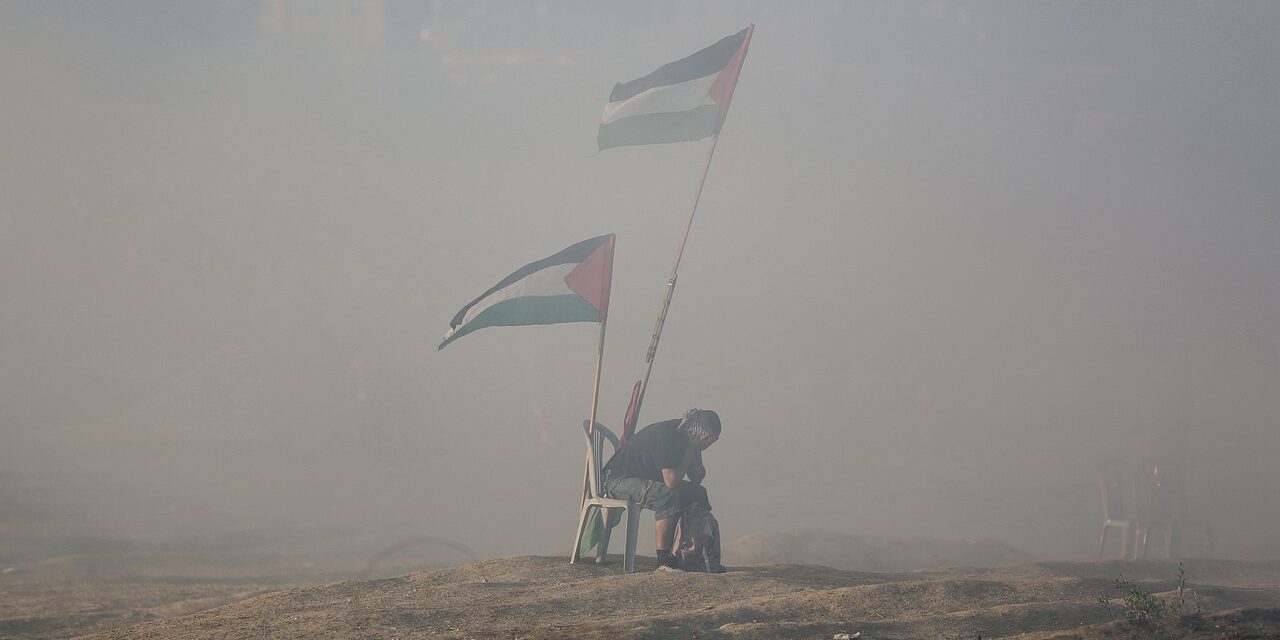After the end of the war, Israel's "responsibility for the Gaza Strip" will cease, the Israeli Defense Minister said on Friday, outlining Israel's military strategic plans. Israel's long-term plan is believed to be the creation of a security zone and a hermetically sealed Palestinian zone.
Speaking about the strategic plans before the Knesset's foreign affairs and defense committee, Joáv Gallant said on Friday: the military operations will be carried out in three phases - in the first phase, the military and government infrastructure of Hamas will be destroyed - this phase will take place with targeted bombings - in the second, less visible military the last terrorist posts in the Gaza Strip will be eliminated with actions - this presumably means an action that includes ground forces as well - and then during the third
"a new security reality is being created for Israeli citizens",
for which "it will be necessary to eliminate Israel's responsibility for the daily life of the Gaza Strip."
The Gaza reality
2.3 million Arab residents live in the 365 square kilometer area - in 2005, Israel withdrew from the area, displaced thousands of Jewish residents and settlers, and handed it over to the Palestinian Authority. In 2007, as a result of an internal civil war, the Fatah faction was forced out of the control of the zone by Hamas, and since then the area has been under the control of the terrorist organization.
Since
among the declared political and military goals of Hamas is the liquidation of the state of Israel,
is the complete elimination of the Palestinian territories from the "occupation of the Zionist regime", Israel does not consider the organization a negotiator, but an intractable enemy, with which it fights only with military means, for the purpose of self-defense.
In line with this logic, since 2007, Israel has imposed a strict blockade on the zone controlled by Hamas, which poses an existential threat to it, restricting imports to the area - preventing arms smuggling - and exports originating from there, limiting not only goods traffic but also passenger traffic - it operates with an Israeli permit for employment purposes. The Gaza Strip is not a state, it is merely an entity under the Palestinian Authority which
has limited sovereignty: its territorial waters, airspace and most of its land exits are controlled by Israel,
the Rafah border crossing provides the only free passage to the outside world to Egypt, but the Egyptian government keeps it open only to a limited extent for security reasons (Hamas is also considered a threat by Cairo, and the flow of refugees is dangerous).
After the terrorist attack on October 7, Israel immediately declared war against Hamas, the declared goal of the Jewish state is to completely shake the influence of Hamas and completely destroy its network. Israeli bombings systematically destroy the terrorist organization's bases, but
military posts that appear to be civilians but are actually disguised as civilians are also targeted,
calling in advance the local Arab population to flee from the airstrikes.
In addition, as a merciless response to terror, the Israeli government also hermetically sealed off the crossings of the zone, completely blocking the supply of electricity from Israel, as well as the transport of drinking water, food and fuel.
What does "discharge of liability" mean?
At the behest of the Israeli army, nearly one million local residents from the northern part of the zone moved to the southern parts, because of the predicted bombings, the majority of the population does not want to risk their lives. However, many people fear that
the Israeli forces invading the evacuated areas will no longer return this part of the zone to the Palestinian Authority.
In other words, the Nakba, the historical drama of the Palestinian people, may repeat itself in 2023, when 750,000 Palestinians were forced to leave their homes in the process of establishing the Jewish state in 1948, and the majority of them - including the majority of their descendants - are still temporary in the surrounding Arab states, but over the decades lives in permanent refugee camps.
In addition to the probability of this, it can be concluded from the words of the Israeli minister that after the war, a new Palestinian authority will have to create a governmental, political and economic structure from scratch in the Hamas-free area according to Israel's hope,
Israel will not have any logistics-service connection with the area
- in other words, the war situation will be permanent: food, water, fuel, electricity, services, aid, goods, people will only be able to enter through the Rafah crossing.
It follows that a huge burden will fall on the neighboring Egypt, since the supply of the almost completely closed enclave will only be possible from here, from the south. This is an impossible mission under the current circumstances.
can be explained by the thoughts of another member of the government, the former leader of Sin Bet, currently the Minister of Agriculture, Avi Dichter - the politician said on Thursday that there will never be a military infrastructure capable of attacking Israel in the territory of Gaza. As he put it,
after the war, Gazans will not be able to come near the Israeli border because there will be a security zone between the two.
This serves as an explanation of what Israel's plan might be for the evacuated parts of the zone: Gaza will be an open prison, hermetically separated from Israel by a security zone, sealed, with military control in its airspace and waters, whose oxygen supply and contact with the outside world will be ensured by a thin umbilical cord, the Rafah border crossing .
If this happens, Israel will set a harsh example with the Palestinian territory that wanted to harm it. This is a message to Fatah, which governs the West Bank territories, and to the surrounding Arab states:
Israel is strong, it defends itself, and it continues to dictate the terms of the agreement.
If the fate of Gaza is decided in this way, the future Israeli-Palestinian agreement and the issue of the Palestinian state to be established in the future will again be in the distant future for many years.
Featured Image: Pixabay













